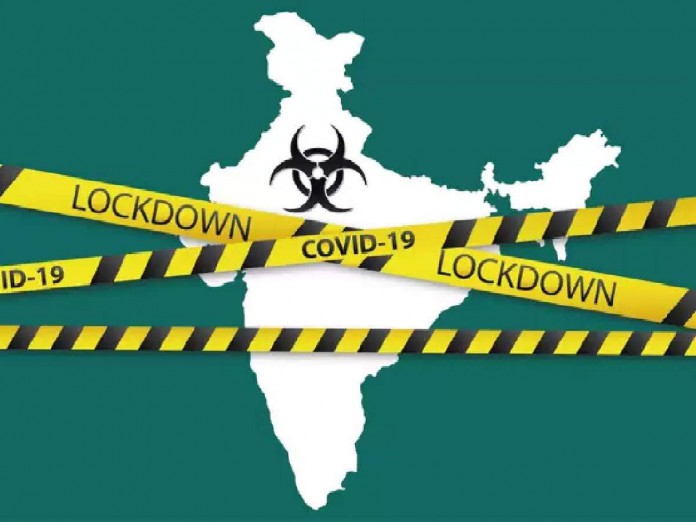Addressing Joblessness in the Face of the Lockdown – by Sanjay Kaul, Chairman, NCML
As widely expected the lockdown has been continued till May 17th . The first fortnight of the lockdown had itself seen a severe adverse impact on urban employment. CMIE had estimated that the urban unemployment rate has soared to 30.9 per cent. According to the former Chief Statistician, Joblessness Pronab Sen, as many as 50 million jobs may already have been lost in the country, most of them in towns and cities. Industry bodies have estimated job losses at 40 million.

Important Announcement – EasyShiksha has now started Online Internship Program “Ab India Sikhega Ghar Se”

Addressing Joblessness the issue of job loss, the government has sought Business Continuity Plans from its ministries. Industry bodies are also giving a host of recommendations. Fiscal stimulus of a high magnitude is required – several independent experts have suggested that Rs. 10-16 lakh crore may be required to bring back the economy to rails.
In this situation government needs to announce immediate relief measures. Joblessness Nobel laureates, Abhijit Banerjee and Esther Duflo, have suggested that the relief measures should largely be universal and simple to apply. This is the central question: What should be the central focus of relief and stimulus? Should it be universal or targeted? Should sections and sectors who have lost jobs get priority?
To answer these questions, we need to understand the main drivers of the economy and of jobs. Urban areas account for 70 per cent of India’s GDP growth and urban economic services have seen the hardest hit. The situation is likely to worsen. Urban cities and towns will probably see prolonged lockdowns as they have emerged as hotspots of the Covid-19 virus. There is need to quickly address this unprecedented situation.
Top Courses in Software Engineering
There appears to be strong logic that fiscal relief should have a conscious urban bias. Jana Dhan accounts of all households residing in urban areas could thus be provided additional relief. There could also be targeted relief to the self-employed and small businesses in towns and cities. Many of these are easy to identify – restaurants and their causal staff; rickshaw, Ola and Uber drivers; construction labour who can be reached through builders and contractors; petty shop owners selling non-essential items, such as garments, who have been compelled to shut down. In this digital age it should not be difficult to identify these households. The worry is that if these sections are not provided immediate relief several of these businesses would permanently shut down – business continuity will not be an option.
Important Announcement – EasyShiksha has now started Online Internship Program “Ab India Sikhega Ghar Se” during this lockdown.
There is justified dilemma and the government faces a Hobson’s choice as no segment has escaped the economic wrath of the current crisis. However, clearly dealing with urban joblessness has to be the topmost priority. The government has gone on record that it promotes innovation. One possible way is that the government considers an expanded MGNREGA for urban areas for the next 3-6 months. Addressing Joblessness This could include, for example, repairs of roads and repairs, construction of pedestrian pathways, and works that can quickly absorb construction labour. Besides providing income such temporary jobs would also provide much need psychological relief to the affected.
Another important priority is to address the agricultural and food supply chains as rural livelihood as well as the livelihood of all citizens are intricately connected to them. The agri-food chains have faced disruptions despite the wide-ranging exemptions. Problems of labour shortage, unavailability of packaging materials, such as jute bags for grains and pulses, have begun to surface. There have also been reports of bans of on several food-processing units, restrictions on the movement of harvester combines, and several components that have adversely impacted the agri-food supply chain. The value chain in its entirety needs to be reviewed thoughtfully and suitably modified.
Empower your team. Lead the industry
Get a subscription to a library of online courses and digital learning tools for your organization with EasyShiksha
Request NowQ. Are EasyShiksha's internships truly free?
Yes, all internships offered by EasyShiksha are completely free of charge.
Q. How can I apply for an internship with EasyShiksha?
You can apply by visiting our website, browsing available internships, and following the application instructions provided.
Q. What types of internships are available through EasyShiksha?
EasyShiksha offers a wide range of internships across technology, business, marketing, healthcare, and more. Opportunities are continuously updated.
Q. Will I receive a certificate upon completing an internship?
Yes, upon successful completion, you will receive a certificate recognizing your participation and achievements.
Q. Are EasyShiksha's internship certificates recognized by universities and employers?
Yes, the certificates are recognized by universities, colleges, and employers worldwide.
Q. Is the download of certificates free or paid?
Access to internships and courses is free, but there is a small fee to download certificates, covering administrative costs.
Q. When can I start the course?
You can choose any course and start immediately without delay.
Q. What are the course and session timings?
These are fully online courses. You can learn at any time and pace. We recommend following a routine, but it depends on your schedule.
Q. What will happen when my course is over?
After completion, you will have lifetime access to the course for future reference.
Q. Can I download the notes and study material?
Yes, you can access and download course materials and have lifetime access for future reference.
Q. What software/tools would be needed for the course?
All necessary software/tools will be shared during the training as needed.
Q. I’m unable to make a payment. What should I do?
Try using a different card or account. If the problem persists, email us at info@easyshiksha.com.
Q. Do I get the certificate in hard copy?
No, only a soft copy is provided, which can be downloaded and printed if required.
Q. The payment got deducted but shows “failed”. What to do?
Technical errors may cause this. The deducted amount will be returned to your account in 7-10 working days.
Q. Payment was successful but dashboard shows ‘Buy Now’?
Sometimes payment reflection is delayed. If it takes longer than 30 minutes, email info@easyshiksha.com with the payment screenshot.
Q. What is the refund policy?
If you face technical issues, you can request a refund. No refunds are issued once the certificate has been generated.
Q. Can I enroll in a single course?
Yes, select the course of interest, fill in the details, make payment, and start learning. You will also earn a certificate.
Q. My questions are not listed above. I need further help.
Contact us at info@easyshiksha.com for further assistance.
With fiscal deficits already projected to rise because of shortfall in tax revenues, the government is left with little space to operate. It needs to swiftly, put together a well-calibrated economic relief plan and implement it NOW.
Sanjay Kaul, Chairman, NCML
Sanjay Kaul is the Chairman of the Company. He is a former Indian Administrative Service officer. Before joining NCML, he was the Director & CEO of the NCDEX Institute of Commodity Markets and Research, New Delhi and has worked as the Joint Secretary, Department of Food and Public Distribution, Government of India. He has around 36 years of experience at the district, state and country levels in development administration, of which ten years has been in commodity markets.
Kaul has also worked extensively with policy makers, project leaders, international agencies and government ministries and also led multi-sectoral development projects and teams. He is a Graduate as well as Post Graduate in Economics from the University of Delhi.
For more information related to technology, visit: HawksCode and EasyShiksha
ALSO READ: admissions-at-iihmr-university-to-go-completely-online-in-a-phased
Get Course: Google-Adwords-for-Beginners




































































